Exercise Stress

Can exercise help with stress management ?
**Topic:** Can Exercise Help with Stress Management? **Summary:** * **Introduction:** The inevitability of stress and its potential impact on health highlight the importance of effective stress management. Exercise is often touted as a beneficial method for reducing stress. * **Relationship Between Exercise and Stress:** * **Physical Effects:** Exercise triggers endorphins, reduces cortisol levels, and improves sleep quality—all of which contribute to stress reduction. * **Mental Effects:** Enhanced cognitive function, increased self-esteem, and mindfulness techniques associated with exercise can aid in stress management. * **Benefits of Exercise for Stress Management:** * **Physical Benefits:** Improved cardiovascular health, weight management, and pain relief can reduce stress caused by related health issues. * **Mental Benefits:** Exercise can alleviate symptoms of anxiety and depression, improve mood, and increase resilience to stress. * **Practical Tips:** * **Setting Goals:** Start small and choose enjoyable activities to make exercise a sustainable habit. * **Consistency:** Scheduling workouts, finding an accountability partner, and tracking progress can help maintain a regular exercise routine. * **Conclusion:** Exercise is a powerful tool for managing stress, offering both physical and mental benefits. Incorporating it into one's lifestyle can significantly enhance overall well-being and resilience to life's challenges.
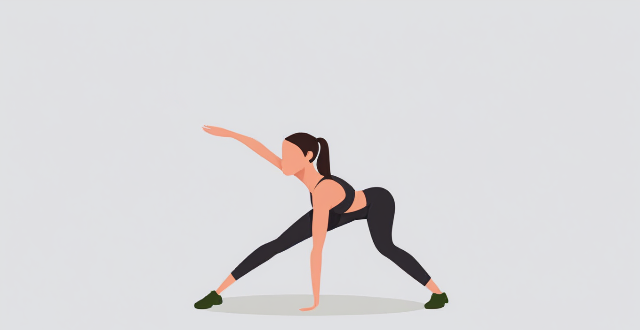
How does exercise help in managing stress ?
Stress is an inevitable part of life, but regular exercise can help manage it effectively. Exercise releases endorphins, reduces muscle tension, improves sleep quality, boosts self-esteem and confidence, provides a sense of accomplishment, and promotes social interaction. To incorporate exercise into your daily routine, start slowly, find an activity you enjoy, make it a part of your routine, mix up your routine, and don't overexert yourself. By doing so, you can reap the numerous benefits of exercise for stress management and overall well-being.

Can exercise physiology help in managing stress and anxiety levels ?
Exercise physiology plays a significant role in managing stress and anxiety levels by promoting various physiological responses that counteract the negative effects of these conditions on the body. By incorporating regular physical activity into your lifestyle, you can improve your overall mental well-being and reduce the impact of stress and anxiety on your daily life.

How does stress management through exercise impact professional well-being ?
The impact of stress management through exercise on professional well-being is significant and positive. Professional well-being refers to overall satisfaction and happiness in the workplace, which includes job satisfaction, work-life balance, relationships with colleagues, and personal growth opportunities. Exercise is a proven method for managing stress, as it releases endorphins and reduces levels of stress hormones like cortisol and adrenaline. Regular physical activity also promotes better sleep, essential for stress management. The impact of exercise on professional well-being includes improved mental health, enhanced cognitive function, increased energy levels, better work-life balance, and improved interpersonal relationships at work. By incorporating regular physical activity into our daily routine, we can achieve these benefits, leading to increased productivity, reduced absenteeism, and improved job performance. Therefore, organizations should promote exercise among their employees as part of their overall wellness program.

How does exercise influence cortisol levels, which are associated with stress ?
Exercise has a complex relationship with cortisol levels and stress management. Acute exercise can cause a temporary increase in cortisol levels, while chronic exercise can help regulate them over time. By managing stress through regular physical activity, individuals can maintain healthy cortisol levels and improve their overall well-being. Chronic stress and persistently high cortisol levels can contribute to a range of health problems, including weight gain, high blood pressure, impaired immune function, decreased bone density, increased risk of heart disease and stroke, and mood disorders such as anxiety and depression. Regular exercise can help manage stress and maintain healthy cortisol levels by improving mood and mental health, better sleep quality, and increased resilience to stress.

How much exercise do I need to do to manage my stress effectively ?
Managing stress through exercise is a crucial aspect of maintaining overall health and well-being. The ideal amount of exercise for stress management, as per the American Heart Association, is 150 minutes of moderate-intensity aerobic activity or 75 minutes of vigorous aerobic activity weekly, along with muscle-strengthening activities involving all major muscle groups at least twice a week. Different types of exercises such as aerobic exercises, strength training, flexibility exercises, and mind-body exercises can contribute to stress relief. When creating an exercise routine, it's important to start slow, choose enjoyable activities, mix up different types of exercises, set realistic goals, and make it a habit. Consistency is key in managing stress through exercise.

Is it better to exercise alone or with others for stress relief ?
Exercising for stress relief can be highly effective, whether it is done alone or with others. Each approach offers unique benefits that can contribute to stress management and overall well-being. Ultimately, the decision should be based on personal preferences, lifestyle, and fitness goals.

How soon after starting a new exercise routine can one expect to see stress-reducing benefits ?
Starting a new exercise routine can reduce stress, but the time it takes to experience benefits varies. Immediately after starting, there may be a temporary increase in stress levels due to physical exertion and adjustment. Within 1-2 weeks, improvements in mood, sleep quality, and energy levels may be noticed. By 3-4 weeks, more significant stress-reducing benefits such as enhanced cognitive function and reduced stress hormone levels may be experienced. After 5+ weeks of consistent exercise, overall mental health and well-being can improve, resilience to stressors can increase, and the risk of developing anxiety and depressive disorders can decrease.

How do celebrities handle stress and pressure ?
Celebrities manage stress through meditation, exerciseCelebrities manage stress through meditation, exercise, social support, time management exercise, therapy, creative outlets, social support, time management, and healthy lifestyle choices.

How does exercising regularly impact stress levels and overall mood ?
This text discusses the impact of regular exercise on stress levels and overall mood. It highlights how physical activity can help reduce stress by releasing endorphins, regulating cortisol levels, improving self-esteem, and providing distraction from worries. Additionally, it explains how exercise enhances mood through immediate effects like increased energy and a feeling of achievement, as well as long-term outcomes such as better sleep and social interaction. The text concludes that regular exercise has a profound impact on mental well-being, promoting both looking good and feeling good.

What are some natural remedies for stress relief ?
Stress is a common problem that affects people of all ages and backgrounds. While there are many ways to manage stress, some people prefer to use natural remedies instead of relying on medication or other treatments. Here are some natural remedies for stress relief: 1. Exercise: Regular exercise can help reduce stress by releasing endorphins, which are natural mood boosters. Even a short walk or jog can make a big difference in your overall well-being. 2. Meditation: Meditation is a popular way to reduce stress and improve mental clarity. It involves focusing on your breathing and clearing your mind of distractions. There are many different types of meditation, so you can find one that works best for you. 3. Yoga: Yoga combines physical exercise with mindfulness and relaxation techniques to help reduce stress and improve overall health. Many yoga classes also include music and aromatherapy to further enhance the experience. 4. Massage therapy: Massage therapy can help relieve muscle tension and promote relaxation by stimulating the release of endorphins and reducing cortisol levels in the body. 5. Aromatherapy: Essential oils such as lavender, peppermint, and chamomile have been shown to have calming effects on the brain and body, helping to reduce stress and anxiety. 6. Herbal teas: Herbal teas like chamomile, ginger, and lemon balm contain compounds that have been shown to have anti-inflammatory and calming effects on the body. 7. Deep breathing exercises: Deep breathing exercises involve taking slow, deep breaths through your nose while focusing on your breath. This helps to calm your mind and relax your body. 8. Spending time in nature: Being surrounded by nature has been shown to have a positive impact on mental health and reduce stress levels. Taking a walk in the park or going for a hike can be a great way to de-stress after a long day at work or school.
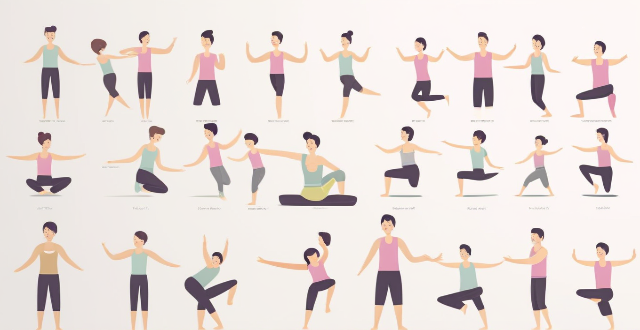
What are the best types of exercises for stress relief ?
The best types of exercises for stress relief include aerobic exercise, yoga, pilates, tai chi, and strength training. Aerobic exercise increases your heart rate and makes you sweat, which can help to reduce stress levels. Yoga helps to calm the mind and body, reducing stress and anxiety levels. Pilates focuses on strengthening the core muscles, improving posture and balance, and increasing flexibility. Tai Chi combines deep breathing with slow, flowing movements and has been shown to be effective in reducing stress levels. Finally, strength training involves using resistance bands or weights to build muscle strength and endurance.

Can regular physical activity help in reducing stress and anxiety ?
Regular physical activity can help reduce stress and anxiety by promoting the release of endorphins, improving sleep quality, and boosting self-esteem. Aerobic exercises like running, swimming, or cycling are particularly effective because they increase heart rate and circulation, leading to improved oxygenation of the brain. Yoga and tai chi focus on breathing and relaxation techniques that can also help reduce stress and anxiety. The American Heart Association recommends at least 150 minutes of moderate-intensity aerobic exercise or 75 minutes of vigorous-intensity aerobic exercise per week for adults. Finding an exercise routine that works for you and that you enjoy is key to sticking with it over time.

Can stress impact a woman's ability to conceive ?
The text discusses the potential impact of stress on a woman's ability to conceive, detailing how stress can lead to hormonal imbalances that affect menstrual cycles and ovulation, decreased sex drive, impaired egg quality, and difficulty maintaining pregnancy. It also provides coping strategies such as mind-body techniques, exercise, building a support system, and making lifestyle changes to manage stress levels and potentially improve fertility.
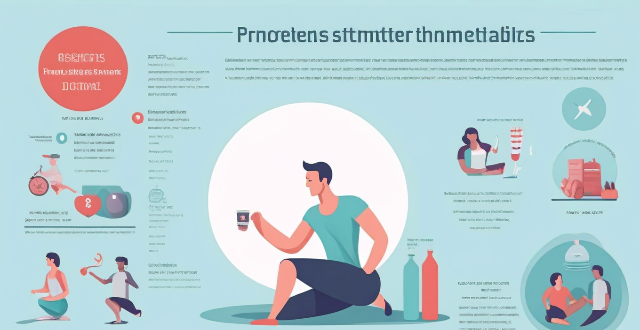
How can I reduce stress in my daily life ?
The article provides several tips on how to reduce stress in daily life, including identifying the sources of stress, practicing mindfulness and meditation, exercising regularly, eating a healthy diet, getting enough sleep, and connecting with others. It emphasizes the importance of taking steps to manage stress and improve overall well-being.

Are there any specific types of exercises that are more effective for stress relief ?
There are several types of exercises that have been shown to be particularly effective for reducing stress and promoting relaxation, including aerobic exercise, yoga, tai chi, resistance training, and meditation. These activities can help to release endorphins, improve cardiovascular health, increase flexibility and strength, provide a sense of accomplishment, and quiet the mind, all of which can contribute to lower stress levels and improved mental well-being.

What are the best types of exercises for reducing stress and anxiety ?
This article discusses the best types of exercises for reducing stress and anxiety, including cardiovascular exercises like running and cycling, strength training exercises like weightlifting and resistance band training, as well as yoga and meditation. It provides benefits and tips on how to get started for each type of exercise. Incorporating these exercises into your daily routine can help to reduce stress and anxiety, leading to improved overall well-being.

How does exercise affect mood and emotions ?
Exercise has numerous positive impacts on mood and emotions, including the release of endorphins for a "runner's high," reduction in anxiety and stress by lowering cortisol levels, and improvement in self-esteem through goal setting and physical changes. Regular activity also enhances sleep quality by regulating sleep cycles and cognitive function by increasing blood flow to the brain. Social interaction during exercise provides emotional support and long-term benefits include prevention of depression and building resilience against stress.

How does exercise contribute to mental rejuvenation ?
Exercise plays a crucial role in mental rejuvenation by releasing endorphins, improving blood flow, enhancing neuroplasticity, reducing stress, improving sleep quality, facilitating social interaction, and boosting self-esteem. Regular physical activity can significantly contribute to improved cognitive functions, emotional stability, and overall mental well-being.

What role does cardiovascular exercise play in managing daily stressors ?
Cardiovascular exercise is an excellent way to manage daily stressors, as it reduces the body's physiological response to stress and leads to improved mental and physical health. The benefits of cardiovascular exercise include reduced stress levels, improved sleep quality, increased energy levels, and better mental health. To get started with cardiovascular exercise, set goals, start slow, find activities you enjoy, and mix up your workouts. Incorporating cardiovascular exercise into your daily routine can help you manage stress and improve overall well-being.

What is the relationship between exercise and mental health ?
Exercise has a profound impact on mental health, enhancingExercise has a profound impact on mental health, enhancing reducing stress, improving sleep quality enhancing mood and cognitive function, reducing stress, improving sleep quality, and fostering social interaction. Regular physical activity stimulates the release of neurotransmitters like endorphins, serotonin, and dopamine, leading to improved mood, relaxation, and better cognitive abilities. It also helps manage cortisol levels, promotes deeper sleep, and provides emotional support through group activities, ultimately contributing to overall mental well-being.

What role does physical exercise play in boosting mental focus ?
Physical exercise is not only beneficial for our physical health, but it also plays a crucial role in enhancing mental focus. Here's how: 1. Release of Endorphins: Regular exercise triggers the release of endorphins, which can help reduce stress and anxiety, leading to improved mental clarity and focus. 2. Increased Blood Flow to the Brain: Engaging in physical activities increases blood flow to the brain, delivering more oxygen and nutrients. This increased blood flow can help improve cognitive function, memory, and overall mental sharpness. 3. Better Sleep Quality: Exercise has been shown to promote better sleep quality and duration. Adequate sleep is essential for maintaining mental focus and concentration throughout the day. 4. Reduction of Stress and Anxiety: Physical activity helps lower levels of the body's stress hormones, such as cortisol. By reducing stress and anxiety, exercise allows individuals to maintain a clearer mind and stay focused on tasks at hand. 5. Enhanced Self-Confidence and Mood: Regular exercise can boost self-esteem and confidence, leading to a positive outlook on life. A positive mindset contributes to better mental focus and productivity. 6. Improved Cognitive Function: Studies have found that regular physical exercise can lead to improvements in various aspects of cognitive function, including attention, memory, and executive functions. These cognitive enhancements directly contribute to increased mental focus and concentration.

Are there any risks associated with constantly monitoring heart rate during exercise ?
Monitoring heart rate during exercise is common but can pose risks like over-reliance on technology, psychological impacts, and physical risks. It's important to find a balance between using heart rate data and listening to your body's signals for a safe and enjoyable workout.

Can exercise be used as a treatment for chronic diseases like diabetes or hypertension ?
Exercise can be used as a treatment for chronic diseases like diabetes and hypertension by improving insulin sensitivity, promoting weight loss, reducing cardiovascular risk, and providing stress relief. Recommended exercises include aerobic activities, resistance training, yoga, and tai chi. It is important to consult with a healthcare professional before starting an exercise program.
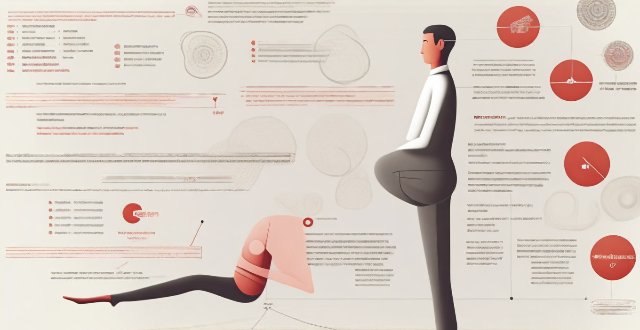
Is yoga an effective method for stress relief ?
Yoga is a popular method for stress relief, offering physical, mental, and emotional benefits. Research supports its effectiveness, and incorporating yoga into your routine can significantly reduce stress levels. Consistency and personalization are key to experiencing its full benefits.

What role does stress play in sleep disturbances and how can it be managed ?
Stress can significantly impact sleep quality by causing difficulty falling asleep, frequent awakenings, light sleep, and early morning awakenings. Managing stress through relaxation techniques, regular exercise, healthy eating habits, a consistent bedtime routine, a comfortable sleep environment, limited screen time, and seeking professional help when needed can improve sleep quality and overall well-being.
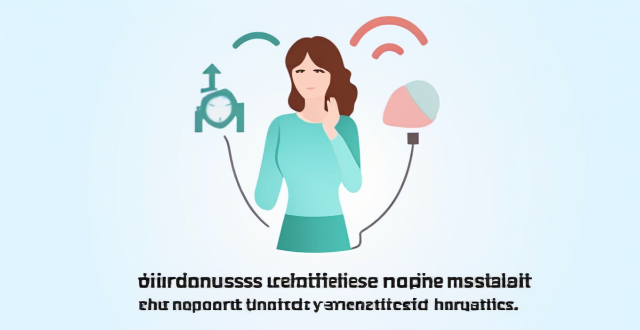
How does stress affect women's mental health ?
This text discusses the effects of stress on women's mental health, including anxiety and depression, sleep disturbances, emotional eating, low self-esteem, difficulty concentrating, irritability and mood swings, substance abuse, and physical health issues. It emphasizes the importance of self-care practices to manage stress effectively.

How does stress management affect women's well-being ?
Stress management plays a crucial role in women's well-being, affecting their physical, mental, and emotional health. By managing stress, women can improve their immunity, sleep quality, and reduce the risk of chronic diseases. It also helps in improving mood, concentration, and reducing anxiety and depression. Stress management can lead to improved relationships, self-esteem, and increased resilience. Overall, it is essential for women's well-being and can lead to a happier and healthier life.

How can I reduce stress and anxiety before and during exams ?
Exams can be a stressful time for many students, but there are several strategies you can use to reduce stress and anxiety before and during exams. These include early and regular study, creating a study plan, practicing old exams, getting enough sleep, eating healthy, staying positive, avoiding negative thoughts, visualizing success, using relaxation techniques such as deep breathing and meditation, exercising regularly, reading instructions carefully, starting with easy questions, managing your time, and staying calm during the exam.

Does strength training have an impact on stress levels ?
Strength training can have a positive impact on stress levels through both physical and psychological benefits. It increases endorphin release, improves sleep quality, enhances self-esteem, provides distraction from stressors, fosters a sense of accomplishment, and promotes mindfulness. Consult with a healthcare professional before starting any new exercise regimen.